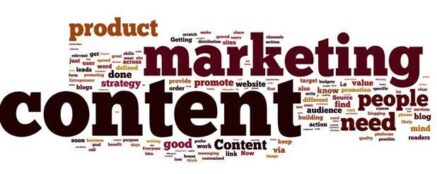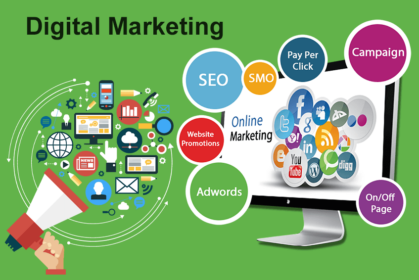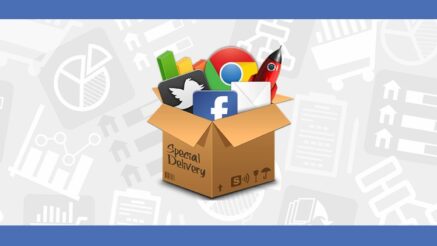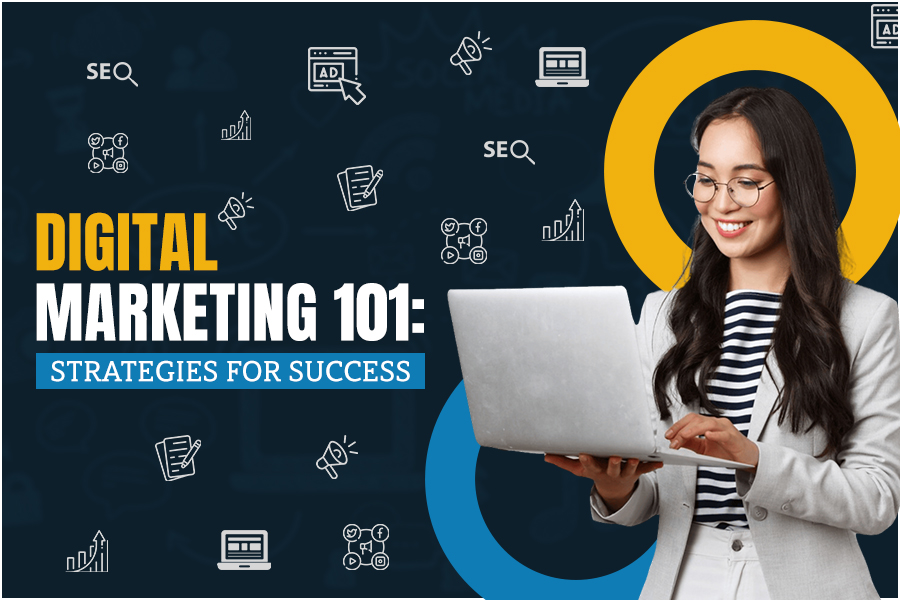
The world is becoming progressively digital every day. Today, success in the digital world starts with mastering digital marketing. Believe it or not, it stands true!
Imagine, for a moment, a passionate individual, wide-eyed and full of ambition, eager to step into the world of digital marketing. This aspiring marketer wants their website to reach out to a global audience.
But, like any great quest, the marketer challenges and uncertainties. How does one attract visitors to their website? What strategies are essential to convert those visitors into loyal customers? How can one navigate the ever-shifting currents of search engine algorithms and social media trends? He/she would be bewildered to the core. This is where we jump in.
If you, like this aspiring digital marketer, find yourself eager to embark on your journey into the world of digital marketing, you’ve come to the right place. We’ll equip you with the knowledge and tools you need to survive and thrive in this dynamic digital realm.
Let us uncover everything about the digital marketing strategies that will lead you to success.
What is a Digital Marketing Strategy?
A digital marketing strategy is a comprehensive blueprint outlining how a business leverages digital channels. It shows how online markets enhance their online presence and engage with their target audience effectively. The primary objective of a digital marketing strategy is to boost brand visibility and convert prospective leads into loyal, paying customers.
We could use an example. Imagine you run a small coffee shop and want to create a digital marketing strategy to expand your customer base. Your plan may involve creating a user-friendly website showcasing your coffee menu, quality ingredients, and a cosy ambience. You could also use social media platforms like Instagram and Facebook to post enticing images.
Additionally, you might explore email marketing to keep your loyal customers informed about new promotions, seasonal drinks, and events at your shop. Finally, you could invest in local search engine optimization (SEO) to ensure your coffee shop appears at the top of Google search results.
You aim to grow your online visibility and attract more coffee lovers to your shop by implementing a website marketing strategy. An experienced digital marketing strategist would do a good job.
The Importance of a Digital Marketing Strategy
Today, everything requires a gadget and high-speed internet in that gadget. Why? Because all products and services revolve around the online system of buying and selling. If every business wants to have a presence in the digital world, it becomes important to adopt different types of digital marketing strategies.
Here are a few reasons why it is important:
- Global reach – Efficient digital marketing leads to reaching a vast, global audience and breaking down geographical barriers. The reach helps the businesses get a different identity and know their audience better.
- Target Marketing – Understanding the specific market is crucial for any online page. Therefore, digital marketing strategies allow precise targeting of specific demographics, interests, and behaviours. It ensures that the marketing efforts reach the right audience. Target marketing can create ripples in the respective industry. For example, a daycare centre has a target audience of parents and their children.
- Cost-Effective – Money is a crucial factor in implementing successful digital marketing. It can be more cost-effective than traditional methods like TV or print advertising. It offers various budget-friendly options like pay-per-click advertising and social media promotions. If using out-of-the-box digital marketing techniques, it will create major rewards.
- Better Customer Engagement – A good digital marketing strategy provides two-way customer communication through social media, email, and chat support. It enhances customer relationships leading to a wonderful brand image and brand building. It would also lead to personalized consumer experiences, tailoring content and offers to their preferences and behaviours.
- Measurable Results – Digital marketing strategies provide data and analytics tools to measure the effectiveness of campaigns in real-time. It allows quick adjustments and optimization. Because of this reason, you can plan other aspects of your business quite well.
- Lead Generation – It facilitates the generation of leads and potential customers through strategies like content marketing and email campaigns. By targeting the right audience and operating persuasive tactics, digital marketing strategies can significantly increase conversion rates.
- Better ROI – It’s all about the money in the end, no matter what. For a business to run smoothly, proper cash flow is essential. Through digital marketing strategies, one can track and analyze results seamlessly. You can better optimize the campaigns and improve the return on investment.
- Integratable with Traditional Marketing – You can combine traditional marketing with digital marketing tactics.It can complement traditional marketing efforts, providing a comprehensive and cohesive brand message.
- Eco-friendly – Instead of putting up advertisements on paper and having billboards, digital marketing plans are much more eco-friendly. There’s no need to distribute pamphlets, have door-to-door talks, and other physical resources. What could be better than this?
- Social Proof and Reviews – Leveraging social media and online reviews can build trust and credibility, influencing consumers’ decisions. It also creates easier market expansion and brand name.
- Accessibility – With the growing use of mobile devices, digital marketing strategies ensure that marketing materials are accessible to users on smartphones and tablets. You can also expect 24/7 availability via such a marketing tactic. The customers have access to the seller all the time, regardless of the timezone. The accessibility and adaptability are quick and change to market conditions.
The Key Components of a Digital Marketing Strategy
Innovative digital marketing strategies include an exhaustive plan. It outlines how a business will leverage various online channels to achieve its marketing goals. People also go for quality digital marketing courses to learn crucial tips and tactics.
To create an effective strategy, one has to consider several key components. Either you or a professional can use it easily-
The SMART Acronym
The SMART Acronym: Specific, Measurable, Achievable, Relevant, Time-bound. Utilizing SMART principles in your strategy development keeps your metrics organized. It contributes to the growth of your KPIs and ROI in future strategies.
Find an Accredited Team
A digital portfolio is essential for marketers to demonstrate their credibility. Authoritative voices not only boost your brand’s reputation within your industry but also in the digital realm.
Given the intense online competition, thorough preparation is key to a successful strategy.
Providing additional training for your team offers the advantage of gaining fresh insights. They could look into the ever-evolving digital marketing landscape. It betters the efficiency of a strategy.
Content Plan
Every website needs a content plan that outlines the type of content one will create (e.g., blog posts, videos, infographics). There needs to be topics that resonate with the target audience.
Remember, the content should be engaging, valuable, and consistent. It should be something that people would love to keep reading or watching. A content plan is one of the best digital marketing strategies.
SEO and Keyword Strategy
SEO digital marketing technique is the topmost priority of online planning. One can optimize the website and content for search engines. The strategies include keyword research to identify relevant terms and phrases that your target audience uses. Digital marketers should incorporate them into the content.
Social Media Strategy
The next component is the social media strategy. You must plan your approach to social media marketing. It includes engagement strategies, content posting schedules, and paid advertising campaigns on platforms. Platforms like Facebook, Instagram, Twitter, and LinkedIn have room for paid campaigns. It creates ample differences in several locations.
Web Designing
More than 90% of an individual’s first impression of a website is related to web design. For a digital marketing plan, it is a crucial factor. For increased attention and engagement of customers, web designing with custom designs is a significant element. It reflects in a certain way on the brand. People find it easy to gain information just through a perfect design.
Email Marketing
Everyone needs at least one email address to function in the digital world. Hence, another critical component of digital marketing is email marketing. You or the professional must develop an email marketing strategy that includes building a subscriber list, segmenting your audience, and sending targeted personalized email campaigns.
PPC
PPC or pay-per-click advertising is a part of digital marketing tactics. People tend to browse a lot on any part of the internet world. This factor is used to create ads and place them strategically on the website, in between videos, or elsewhere.
Consider pay-per-click advertising on platforms like Google Ads or social media ads. There needs to be a clear budget and target demographic set to maximize ROI.
Conversion Optimization
A professional or you need to implement strategies to improve the conversion rate on your website. They can be the call-to-action buttons, user-friendly navigation, and landing page optimization. It would attract more engagement from browsers.

Types of Digital Marketing Strategies
There are many digital marketing strategies out there. Some deliver better results than others. Hence, we will examine the 11 most effective digital marketing strategies currently used in our industry.
- Inbound Marketing – It involves creating valuable content to attract and engage potential customers, guiding them through the buying journey.
- Content marketing – This one focuses on creating and sharing informative, relevant content. It appeals and recollects a clearly defined audience.
- Account-based marketing – It targets specific high-value accounts with personalized marketing strategies, especially in B2B marketing.
- Search engine optimization (SEO) – SEO optimizes website content and structure to rank higher in search engine results. It increases organic traffic.
- Social media marketing – SMM utilizes social platforms to connect with audiences, promote products or services, and build brand presence. It is one of the most efficient digital marketing ways.
- Email marketing – Email marketing engages with customers and prospects through personalized email campaigns, newsletters, and product updates.
- PPC advertising – Pay-per-click advertising involves paying for clicks to your website, commonly seen in Google Ads.
- Video marketing – This one operates videos to convey messages, showcase products, or provide informative content through platforms like YouTube and social media.
- Online (and in-person) events – This includes webinars, virtual conferences, and in-person events to engage and educate the audience.
- Chatbot and live chat marketing – Utilizing automated chatbots or live chat to provide immediate assistance, enhance customer support, and guide users.
- Earned Media – It involves PR efforts to gain media coverage, reviews, and mentions through public relations strategies, enhancing brand credibility.
These are a few effective digital marketing tactics and strategies. It will boost a brand image and revenue if used carefully.
How To Build a Digital Marketing Strategy – A Small Guide
Building a digital marketing plan is not a stress-free task. Regardless of which strategy you choose, there are a few things to keep in mind. Let’s look into it-
Have Clear Objective
The business owner should have a clear idea of what they are getting into. They should define specific, measurable, and realistic goals for all digital marketing efforts. Among the various objectives, the businesses might consider, increasing website traffic, generating leads, boosting sales, or enhancing brand awareness, holds the top position.
Doing a thorough competitive analysis, learning about your product or service, and knowing the target audience is important. With years of experience, we can guarantee that without this key component, nothing would work well.
Buyer’s Persona
Creating a buyer persona is a strategic process that involves delving into the interests and needs of your target audience. By developing a comprehensive buyer persona, you can customize your marketing messages to align with their specific interests and motivations. It ultimately motivates them to make purchases from your business.
To craft an effective buyer persona, it is essential to gain a deep understanding of your target audience, considering user demographics and the underlying motivations that influence their decisions to select your company, products, or services.
Auditing
To conduct an asset audit, start by thoroughly documenting your current digital assets to gain a comprehensive understanding of your business’s online resources. Next, assess each asset’s effectiveness, ranking them from most to least productive.
This evaluation will help identify areas that require improvement and those necessitating a complete overhaul. For instance, in an SEO-focused content audit, begin by crawling the site to gather URLs from various pages, then pinpoint content gaps based on personas and campaign goals.
Collaborate with an SEO expert to evaluate existing URL performance and identify new keyword opportunities. Consolidate this data in a spreadsheet for a clear overview and compile recommendations for existing pages, as well as a plan for developing new ones.
Channel Selection
We know it can be confusing to see various options and choose just one or two. Discuss with someone who uses digital marketing strategies or a professional team. Determine which digital channels are most suitable for your business. This might include your website, social media platforms, email marketing, search engines, content marketing, and more.
If you already have a channel, audit it carefully. Assess the current results and campaigns and see what can be improved. For instance, investing in SEO strategy because you saw the most traffic through Google search results.
Plan Content
Different departments need separate budgeting, resources, tech, and deadlines. Depending on the requirement, allocate resources and budget to various marketing activities, ensuring you invest in the most effective channels and campaigns.
Establish distribution of work. Create a timeline for your digital marketing strategy with specific milestones and deadlines. It helps keep the strategy on track and ensures timely execution.
Depending on which strategy you choose, have a set timeline no matter what.
Distribution
To conduct an asset audit, start by thoroughly documenting your current digital assets to gain a comprehensive understanding of your business’s online resources. Next, assess each asset’s effectiveness, ranking them from most to least productive. This evaluation will help identify areas that require improvement and those necessitating a complete overhaul.
For instance, in an SEO-focused content audit, begin by crawling the site to gather URLs from various pages. Then pinpoint content gaps based on personas and campaign goals. Collaborate with an SEO expert to evaluate existing URL performance and identify new keyword opportunities.
Consolidate this data in a spreadsheet for a clear overview and compile recommendations to enhance existing pages, as well as a plan for developing new ones.
Monitor and Report
Tracking and assessing the effectiveness of the internet strategies is crucial for continuous improvement. For instance, you may observe that your social media ads outperform your PPC ads. It enables one to optimize your approach for better returns on investment.
How to Find The Best Place To Learn Digital Marketing Strategy?
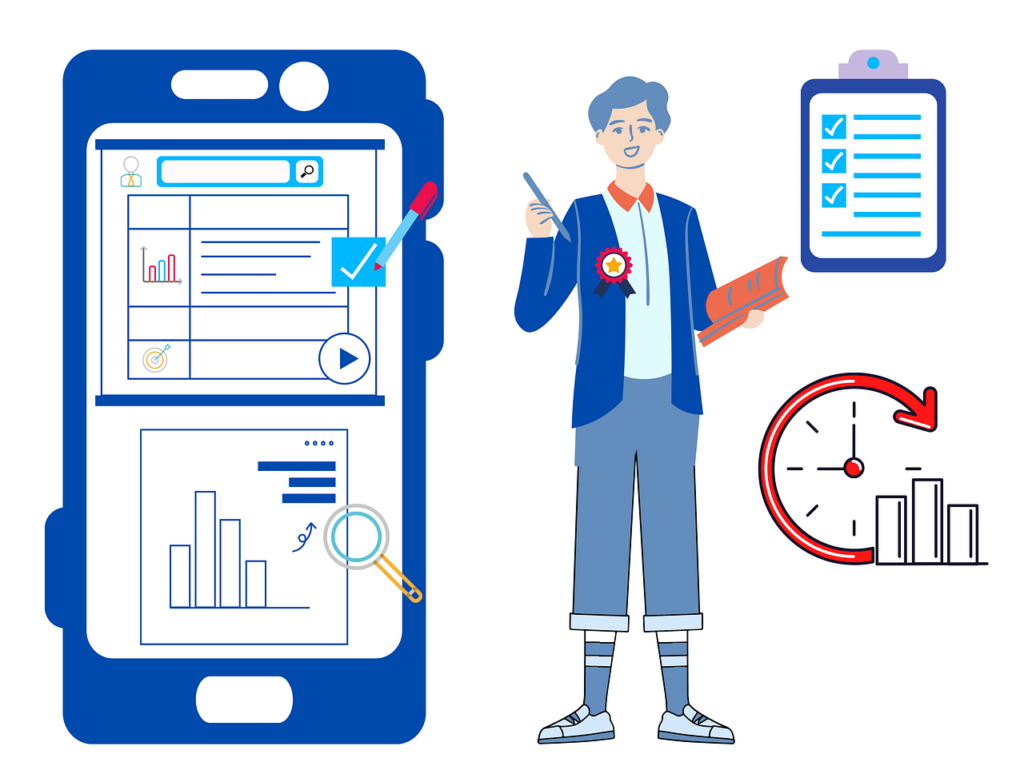
Finding the right school or institution providing a thorough knowledge of digital marketing can be difficult. Here are a few ways to find the best institute-
- Research Online: Use search engines, review websites, and forums to research different schools and institutions offering digital marketing courses.
- Check Accreditation: Ensure the institution is accredited or recognized in the field of digital marketing education.
- Read Reviews and Testimonials: Look for reviews and testimonials from past students to gauge the quality of the courses and the institution’s reputation.
- Course Curriculum: Examine the course content, ensuring it covers a broad range of digital marketing topics and the latest industry trends.
- Faculty Expertise: Consider the expertise of the instructors. Experienced professionals in the field can provide treasured understandings.
- Practical Experience: Determine if the courses include hands-on projects or real-world case studies to apply what you learn.
- Certifications: Check if the institution offers recognized certifications upon course completion.
- Networking Opportunities: A good institution may provide networking opportunities with industry experts and fellow students.
- Flexibility: Consider the flexibility of course delivery, including in-person, online, or hybrid options.
- Cost and Financial Aid: Compare tuition fees and inquire about any available financial aid or scholarships.
- Location: Decide whether you prefer a local institution or are open to learning from institutions in different locations.
- Support and Resources: Assess the availability of support services, such as career counselling and access to digital marketing tools and resources.
- Success Stories: Research the success stories of past students and alumni to understand the practical outcomes of the education.
- Duration and Time Commitment: Determine the length of the courses and the time commitment required to complete them.
- Ask for Recommendations: Seek advice and recommendations from industry professionals or colleagues who have pursued digital marketing education.
- Demo or Trial Courses: Some institutions may offer trial courses or free resources to help you evaluate their teaching methods.
- Return on Investment: Assess the potential return on investment in terms of job prospects and career advancement after completing the course.
- Continuing Education: Inquire about opportunities for ongoing education and updates to stay current in the fast-paced digital marketing field.
Top Digital Marketing Course At Webskitters Academy
Crafting a digital marketing strategy that perfectly fits your unique business is a personalized journey. You can learn about digital marketing and find your specific calling to create a difference in any online market. At Webskitters Academy, delve into the world of digital marketing without any hesitations. From digital marketing tips to a proper framework, learn everything easily.
Our expert faculty is prepared to go the extra mile to ensure you harness the very best from your experience. They are committed to your success with the latest study module and hands-on learning. There is the learning of digital marketing strategy for beginners. Contact us to know more and gain an advantage like no other.
Search
I Want to Learn...
Category
Explore OurAll CoursesTransform Your Dreams
into Reality
Subscribe to Our Newsletter
"*" indicates required fields
Similar Reads
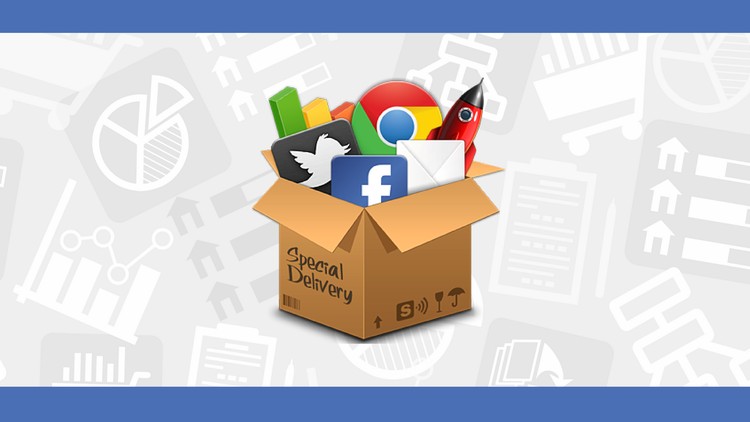
Prospective Growth Opportunities For Digital Marketers


